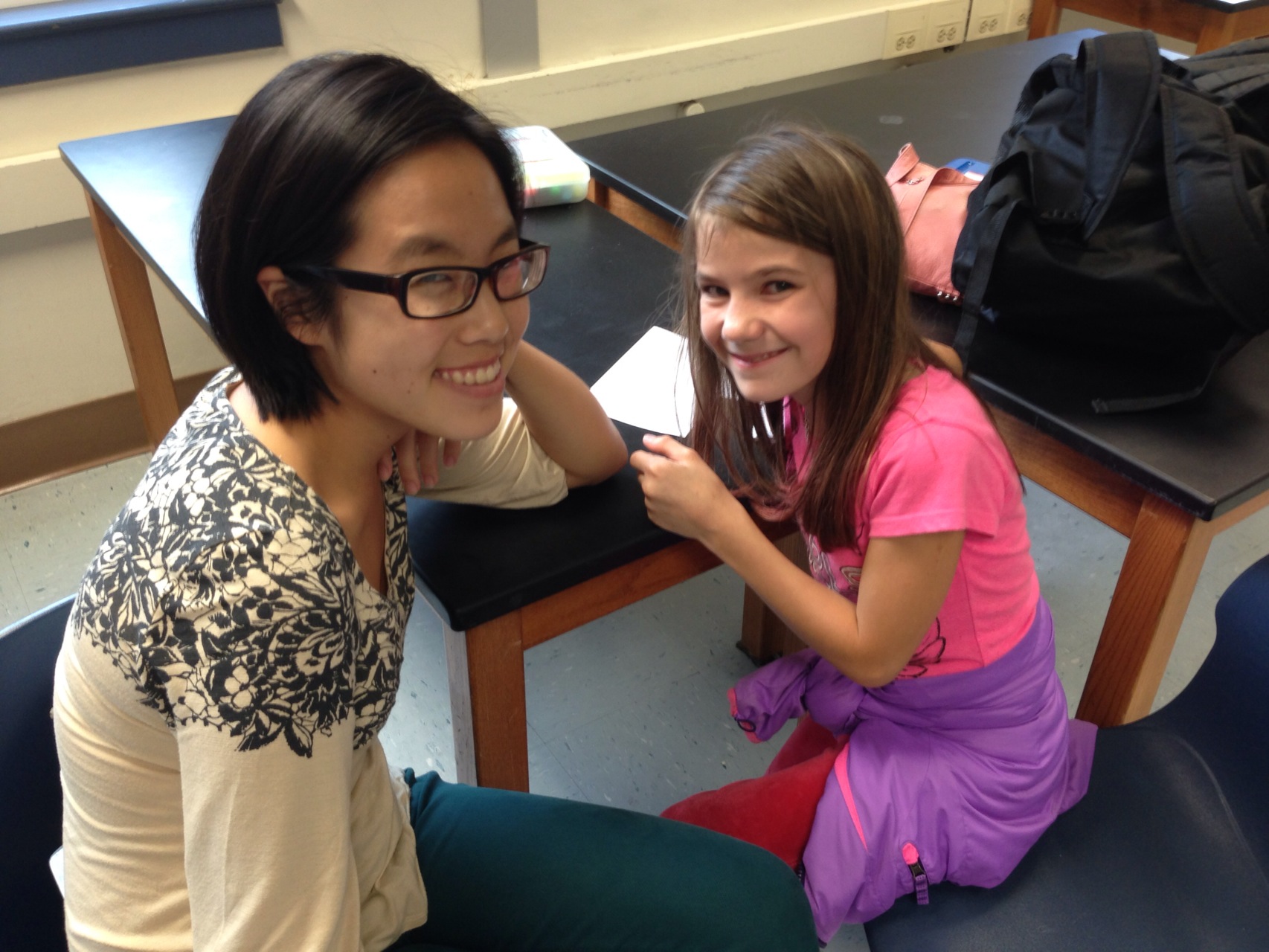On Dec. 31, President Obama declared January “National Mentoring Month,” stating, “Mentors help children build confidence, gain knowledge and develop the strength of character to succeed inside and outside of the classroom.”
The timing of the President’s announcement was fortuitous for researchers at the University of Virginia’s Curry School of Education who are working to measure those positive impacts in relation to young women, and how long those effects last.
Three Curry School faculty members and a postdoctoral student received a $300,000 grant from the U.S. Office of Juvenile Justice and Delinquency Prevention to measure the long-term impact of U.Va.’s Young Women Leaders Program on participating adolescent girls.
The mentoring program pairs U.Va. female students with local middle schools girl for a year of group and one-on-one mentoring, and is designed to support and enhance the sense of competence of both the college students and the middle school girls through the promotion of leadership skills.
The program was founded at U.Va. in 1997 by Edith “Winx” Lawrence, a professor in clinical and school psychology at the Curry School, and Kimberly Roberts, then a graduate student working at the U.Va. Women’s Center.
The program now has 10 sister sites nationwide, reaching as far as California, and five international sister sites in Mozambique, Cameroon, Nicaragua, Peru and Ethiopia. Each sister site utilizes the mentoring curriculum developed and researched by Lawrence and her colleagues.
Lawrence, along with Curry School faculty colleagues Nancy Deutsch and Joanna Lee Williams, and Valerie Futch, a postdoctoral fellow[ND1] with Youth-Nex: The U.Va. Center to Promote Effective Youth Development, will conduct a long-term follow-up study on the middle school participants’ academic, social and emotional outcomes.
In 2007, Lawrence, Deutsch and their Young Women Leaders Program research team received a three-year, $500,000 Department of Education grant to research the program’s effects immediately after the mentees completed the program in seventh grade. The new grant allows the team to look at the same girls – some now high school seniors – and compare them to a control group of girls who did not complete the program.
“We are interested in whether the program has an impact on participants beyond their initial participation in middle school,” Deutsch said.
The researchers will survey three cohorts of girls from local high schools who were part of that original study. At the time of the original study, teachers and administrators nominated 333 sixth-graders with leadership potential whom they deemed as being at risk for possible academic, social or emotional issues. As the program could only serve a limited number of girls, the nominees were randomly selected to either participate in the program or to serve as part of the control group as seventh-graders.
At the end of their senior years, researchers will survey both groups of students about their academic, social, emotional and behavioral outcomes. Their academic transcripts will be reviewed, and their teachers will be asked to fill out surveys about the students’ academic and behavioral characteristics. Finally, researchers will conduct in-person interviews with a sub-sample of girls and phone interviews with their former U.Va. student mentors.
The follow-up surveys will be used to statistically compare intervention and control groups for evidence of long-term program effects, and the interviews will be used to help the researchers understand what happens in successful mentoring relationships from the perspective of mentors and mentees five years later.
The research team hopes to answer three primary questions:
- Is the Young Women Leaders Program effective in preventing or reducing girls’ delinquency and associated risk outcomes in at-risk adolescent girls?
- What do mentees and mentors identify as key mentoring and relationship processes related to effective mentoring?
- Do key mentoring and relational processes moderate the effects of the mentoring intervention in preventing or reducing girls’ delinquency and associated risk outcomes during high school?
“We are also interested in identifying potential mentoring processes, such as things that mentors do or don’t do or things that characterize the mentoring relationships, that may be related to the effectiveness of the YWLP mentoring,” Deutsch said.
Lawrence added that this research is a “great initiative in the field of mentoring where no long-term follow-up studies have been done.”
The surveys will take place over the course of three years. Researchers collected data from the first cohort of girls, the randomized seventh-grade participants from the 2007-08 school year, last year, and they plan to conduct interviews with mentors from the first and second cohorts this winter. Researchers will begin surveying and interviewing girls from the second cohort, the randomized seventh-grade participants from the 2008-09 school year, this spring. Initial data analysis will take place this summer, and the final cohort of girls, from the 2009-10 school year, will be surveyed and interviewed in the spring of 2015.
A secondary hope is that this research will provide insight into how the quality of the mentoring relationship affects girls’ long-term outcomes.
“The processes within the mentoring relationships that may contribute to outcomes is not well understood, so we hope to help identify what mentors actually do in relationships that may be beneficial for mentees,” Deutsch said.
Media Contact
Article Information
January 28, 2014
/content/uva-receives-grant-measure-long-term-impact-mentoring-young-women

